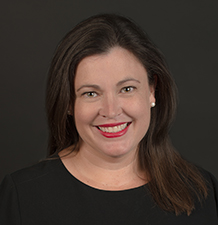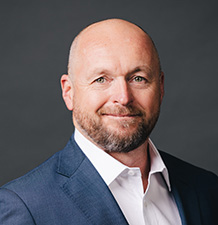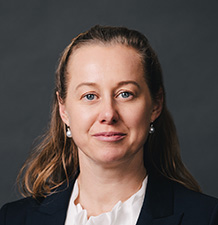When it comes to ESG, the role of in-house counsel is integral, whether that’s with a view to managing and mitigating risk, identifying opportunities for longer-term value creation, or (let’s face it) everything in between.
This was the sentiment across the country during our ESG Panel sessions hosted as part of our WIN In-House Counsel week. Our panellists explored this broad and complex topic in terms of the potential for value creation: attracting and retaining great customers and people, driving innovation, building brand equity and overall business resilience. A standout theme across all conversations was the recognition that to realise this type of value, ESG ambitions need to be brought to life through clear corporate strategy and leadership, and embedded into the organisation at all levels. ESG should be central to the organisation and never owned by one department or role – it’s a whole-of-organisation endeavour.
What you said…
We polled our audiences on what they believe represents the greatest ESG priority for their organisations. Across the country, Corporate Purpose was the most important ESG priority (29.5 per cent), followed next by Governance & Reporting (17.5 per cent).
These results are reflective of where we see Australian organisations on their ESG journey: spotting and managing risk, reporting on a range of obligations, and embedding frameworks to understand and manage these risks. While these remain core components of the in-house counsel’s role, there is a clear acknowledgement that before you can build a meaningful governance framework, organisations need to understand and articulate their corporate purpose and how this manifests throughout their environmental and social practices.
What they said…
We were thrilled to be joined by highly experienced and insightful panellists to talk all things ESG: including James Couche (Head of Legal and Contracts, Thales), Justin Pilgrim (Sustainability Manager, Cobram Estate Olives Limited) and Bianca Lau (Head of Legal, Youi Insurance), Matt Spain (Partner, DLA Piper), Sean Faehrmann (International Director, DLA Piper Business Advisory) and Alison Cunniffe (Advisor, DLA Piper Advisory).
With engaging discussion led and facilitated by Natalie Caton (Partner and an ESG Lead at DLA Piper), our panellists covered a range of topics, including the rapid evolution of ESG, the need for clearer standards and regulations, common pitfalls and growing risk areas. There was also plenty of discussion about how ESG can trigger innovation inside your organisation demanding different skill sets and ways of thinking, as well as collaboration across various stakeholder groups and at all levels of an organisation.
Our panellists explored how the role of in-house counsel as it relates to ESG is influenced by different factors including:
- Geographic footprint: For those companies with an international parent company or operations across other jurisdictions, the role of ESG becomes more complex. For in-house counsel here in Australia, it becomes a balance between navigating varying international requirements, while also responding to issues locally. According to James Couche, at Thales – a multinational organisation with 80,000 people across the world and a parent company out of France – he often adopts the role of ‘translator’ through understanding what a parent company or group wants, and translating what that means in a local context. It’s meeting Australian obligations – for instance, having a Reconciliation Action Plan – which are important to us here – and drawing links with the international operations where there are common obligations and goals. For instance, aligning around what we are doing in response to global social and environmental issues, such as human rights and sustainability initiatives.
- Understanding of stakeholder expectations: For in-house counsel to add value, it is critical to understand what your stakeholders – both internal and external – want and expect, and to continually stay tuned in, in order to respond to their wide ranging and evolving needs. According to Bianca Lau at Youi Insurance, while the volume of information and pace of change in the ESG space can be challenging, in-house lawyers add significant value through their ability to digest large volumes of information and simplify this for internal stakeholders. In-house teams are also well-placed to engage and influence across an organisation given their good understanding of varying stakeholder expectations.
When it comes to ESG, there can be a multitude of stakeholders (Boards, your people, your clients or customers, investors, supply chain participants, Government, the community – to name a few) each with their own priorities and expectations. According to Justin Pilgrim at Cobram Estate, Australia’s largest olive oil producer – you need to understand your stakeholder and what matters before attempting to engage with them meaningfully. For some audiences, you can make an economic argument for ESG and that will get heads nodding quickly. But others are looking for different information. A simple yet powerful example of Cobram’s sustainable farming practice – re-using olive pits as a renewable energy source – is something that resonates and has great impact with Cobram’s customer base. - Your ability to embed ESG strategy and ambitions: While gaining clarity and alignment on Corporate Purpose is essential, ensuring it is embedded into the organisation and living up to aspiration and intention is equally critical. When it comes to leading and influencing ESG considerations within organisations, the role of in-house counsel has evolved significantly, even just in the last few years. James Couche has seen a notable shift in focus amongst Thales’ legal team globally – from how projects were being delivered, what litigation they were seeing – to a significant focus on ESG. In-house counsel that play a key role in capturing and accumulating value from ESG initiatives will have a widespread and long-lasting impact, whether that value translates in terms of brand value, the ability to attract and retain talent, efficiency gains, access to capital, or through unlocking innovation and gaining sustained competitive advantage.
- Your ability to stay ahead of and guard against emerging areas of risk such as (no surprises)…greenwashing: The core of the in-house counsel role is, of course, to mitigate against risk which requires transparency and accuracy of claims, ensuring they aren’t vague or misleading, that they can be substantiated, and that for all disclosures the accuracy of the claim has not expired since original publication. Bianca Lau explained that the increasing scope and pace of change with regard to ESG legislation will also naturally require greater involvement from in-house counsel and that leveraging external expertise to assist with internal education can help to continue to promote ESG up the agenda and in turn spark more interest and gain traction. Bianca also highlighted the importance of identifying trends before they occur and helping the business stay ahead (for example, ASIC’s focus on greenwashing was one that could be predicted well-ahead of their announcement of it being a focus). All agreed that obtaining external certifications and meeting their strict requirements (like Fairtrade or RIIA) can safeguard against issues and build credibility, as can third party auditors and advisors. And let’s not forget to monitor the supply chain. Our panellists touched upon the issues that can arise when certain claims are undermined by activity further down your supply chain.
This is a snapshot of just a few of the insights and examples shared by our panellists. To watch the full panel discussion, you can find the recordings located here.
We regularly cover developments and work alongside clients on their ESG strategies, priorities and initiatives. We bring together the best teams, locally and globally, to help our clients transition to, and thrive in, a more sustainable future.
Get in touch with our team to learn more:
 |
Natalie Caton Partner
|
 |
Matt Spain Partner |
 |
Sean Faehrmann International Director Sustainability and Organisational Change |
 |
Alison Cunniffe |